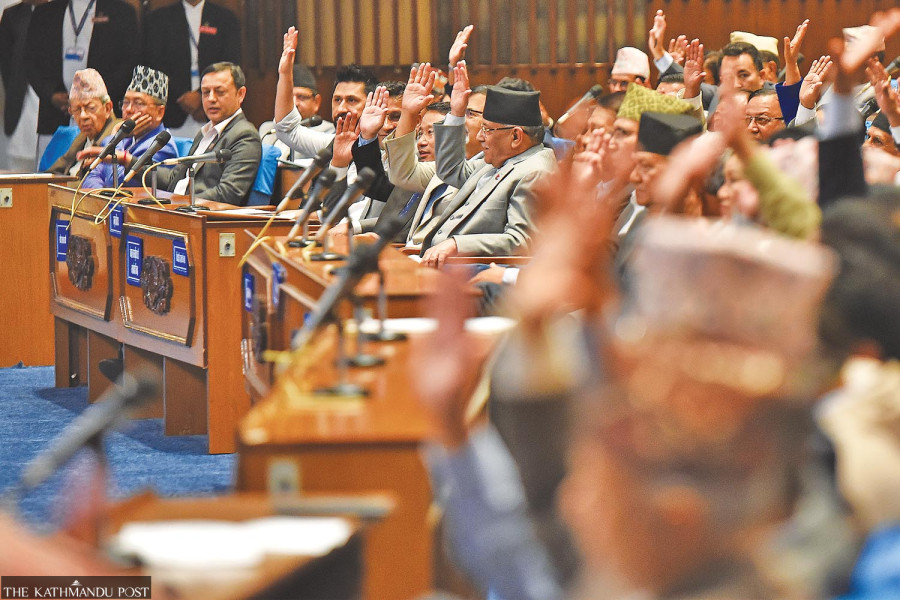Editorial
Renewed hope for justice
The passage of TRC bill is welcome, but the victims should get a hearing throughout the process.
Eighteen years after the decade-long Maoist insurgency (1996-2006) ended, there is finally some hope of justice for the victims. On Wednesday, the House of Representatives endorsed the bill to amend the Enforced Disappearances Enquiry, Truth and Reconciliation Commission Act 2014. (The bill has yet to pass the National Assembly and the President’s authentication, which will take some time.) This long-overdue amendment has also brought a much-needed relief for everyone who advocated for justice and reparation for those affected. The latest step will pave the way for completing the pending tasks of seeking truths about insurgency-era cases of violence and possible closures.
Some provisions in the TRC Act called for amnesty to perpetrators of serious human rights violations. Several governments have been formed and toppled since the Supreme Court in 2015 directed the authorities to make necessary revisions to the Act. Years went by with no urgent actions, and justice remained a pipedream. Only recently did the leading parties—Nepali Congress, CPN-UML and Maoist Centre—heed the bill introduced by the former premier and Maoist chair Pushpa Kamal Dahal last year.
Even though the bill has received a positive response from many quarters, including diplomats and heads of international organisations closely watching Nepal’s peace process, some human rights activists and victims are still concerned about some provisions in the bill. It categorises rape or serious cases of sexual violence, enforced disappearances and intentional killings as non-amnestiable, which is a sensible provision. But it allows for amnesty in other human rights violations cases and allows for reducing the sentence by up to 75 percent if perpetrators fulfil some set criteria except in rape or serious sexual violence cases, leaving space for manipulation. The bill also omits the issue of child soldiers used during the insurgency, and this is a serious concern.
Given such flaws, there are genuine concerns as to whether the leaders are simply trying to end the chapter with minimal changes. That the major parties have come together to conclude this long-pending issue is laudable, but they shouldn’t use the bill to appease political factions or collect brownie points. The three leading party chairs—Sher Bahadur Deuba, KP Sharma Oli and Pushpa Kamal Dahal—marked the endorsement as a matter of national pride. Dahal, the chief architect of the insurgency, said he hoped it would “lead the country towards the conclusion of the peace process.” The first step the leaders should take is to work towards appointing officials to the Truth and Reconciliation Commission and the Commission of the Investigation on Enforced Disappeared Persons, both of which have been left in limbo for over two years.
The next step is to heed the concerns and disagreements of the stakeholders of the peace process and resolve them. The TRC dream will translate into reality only with an unwavering commitment to ensuring a just and respectful environment for the victims. It remains to be seen if the law will be implemented as promised and hoped. If not, it will betray the very principles of justice and reparation upon which Nepal’s peace process was founded.




 8.43°C Kathmandu
8.43°C Kathmandu














